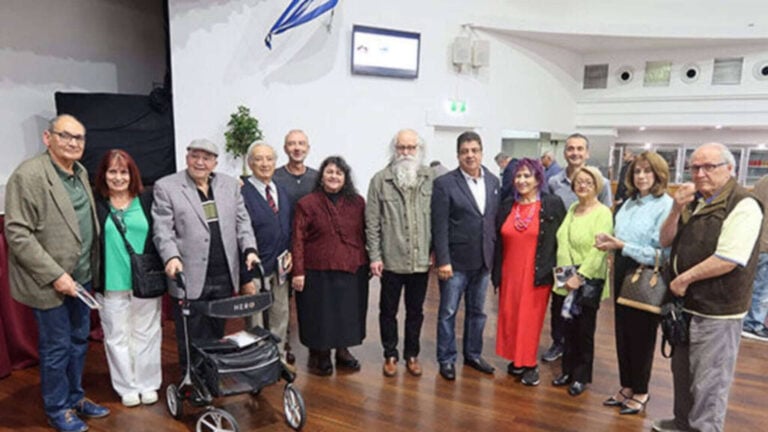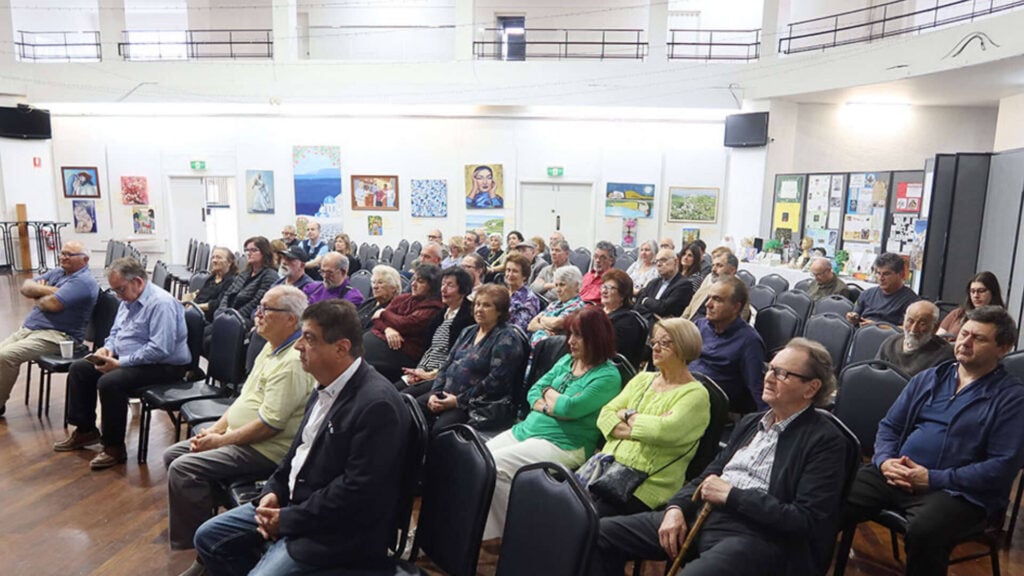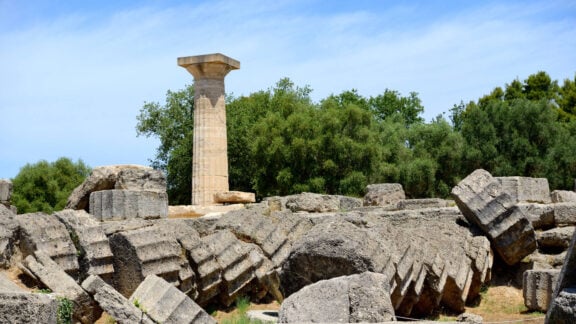Dr George Vasilakopoulos, Senior Lecturer at La Trobe University in Melbourne, delivered a thought-provoking lecture on the history of the Greek community in Australia, tracing the journey from the first Greek migrants of the 1820s to the present day.
The event, held as part of Adelaide’s Odyssey Festival on Sunday 5 October at the Olympic Hall, drew around 100 members of the local Greek community. The lecture was presented in both Greek and English.
Dr Vasilakopoulos discussed how Greek migrants, through their struggles for the rights of both migrants and Aboriginal peoples, helped establish strong Greek communities that gave them representation and a voice in Australian society and politics. He highlighted their pivotal role in shaping the nation’s multicultural identity, now a defining feature of Australian life.
The lecture follows the recent release of his book Whose Homeland Is It? The Greek-Australian Communities and the Future, co-authored with academic researcher Dr Toula Nikolakopoulou. The publication, drawing from articles originally published in Neos Kosmos, expands upon them with theoretical analysis and references. Its title borrows a line from poet Christos Fifis.

Speaking to SBS Greek, Dr Vasilakopoulos said the question “Whose homeland is it?” carries special weight in Australia, a country built through colonisation and violence.
“For our communities, the challenge is to rediscover their democratic tradition and engage responsibly with fundamental questions of social justice and historical memory,” he said.
He also offered a critique of the Greek Orthodox Archdiocese, noting that its attempts to claim political representation for the community have often weakened collective dialogue.
Dr Vasilakopoulos stressed that the Greek diaspora must link its own history with that of Australia and stand in solidarity with other peoples facing injustice, including Indigenous Australians and Palestinians.
“If our communities stop thinking critically and fail to reclaim their political dignity,” he warned, “they risk becoming little more than an ethnocentric display.”







